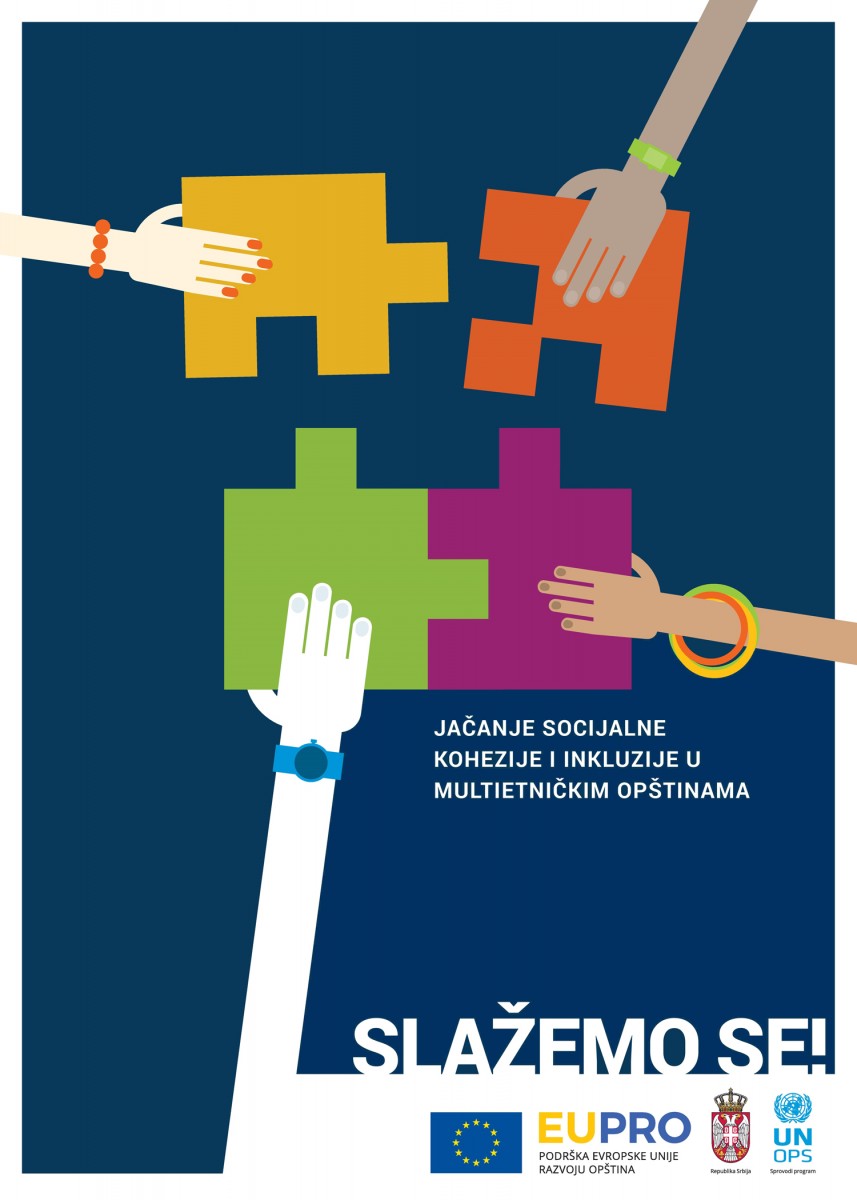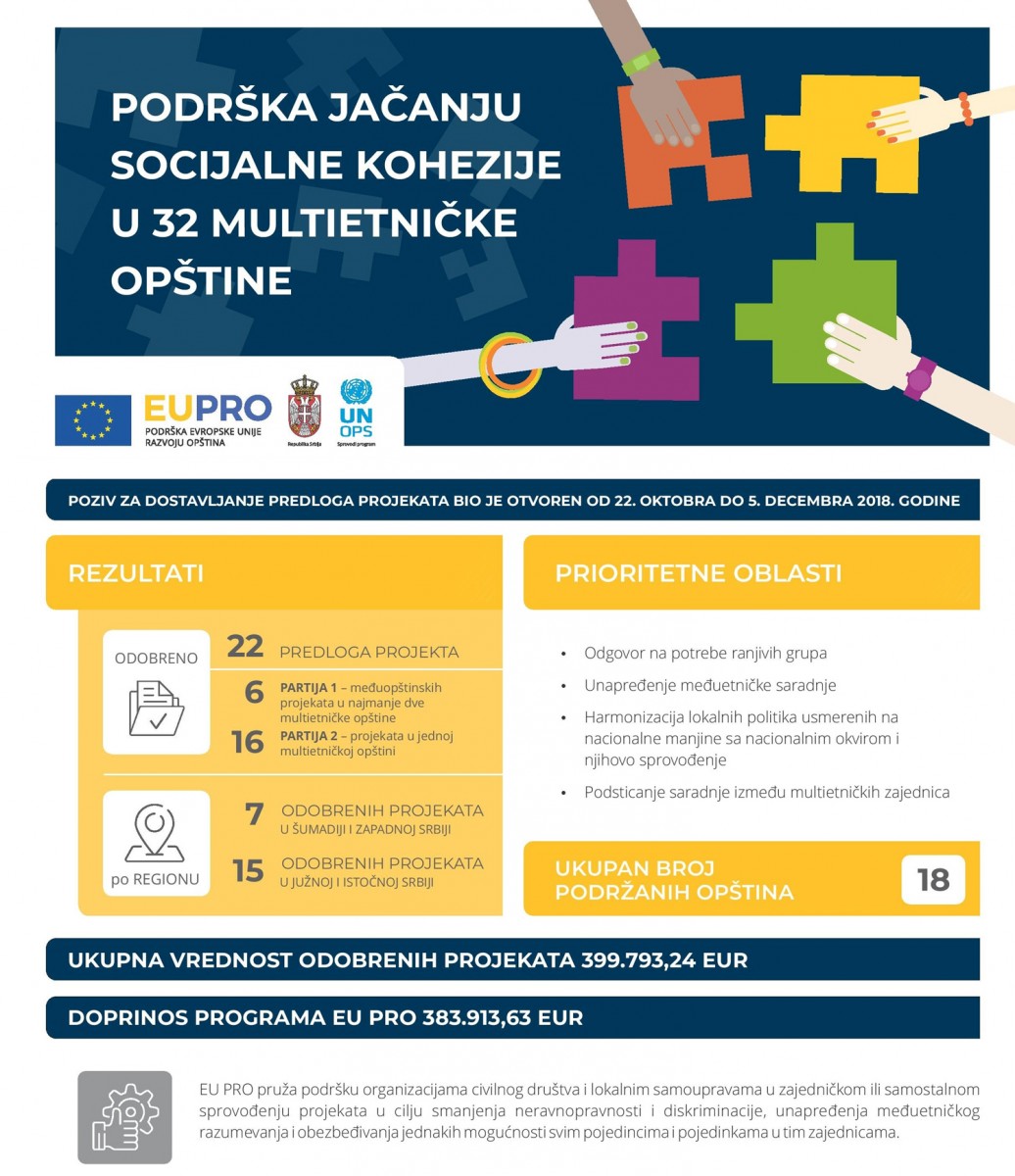Belgrade, 16 May 2019
„Piecing Together“ – the EU Support to 22 New Projects for Fostering Social Cohesion
"The strong civil sector is a precondition for effective citizen participation in the most important processes of social development. Through the EU PRO programme, we support the policy of the Government of the Republic of Serbia that implies both the existence of a strong civil society and balanced, sustainable local development. We hope that the civil society organisations whose projects have been approved for funding will further contribute to the quality of life of citizens in their local communities, improving the quality of dialogue, multiculturalism and empowering women entrepreneurship," Jadranka Joksimović, Minister of European Integration of the Republic of Serbia said.
“The European Union supports civil sector as one of the drivers of positive change and through these projects, we will contribute to creation of a society dedicated to the well-being of all its members, a society that protect people against discrimination, fosters solidarity and diversity, with the institutions enabling protection of human rights for all citizens alike. This is what we mean when we say "EU for You”, Head of the Delegation of the European Union to Serbia, Ambassador Sem Fabrizi said.
Through the projects, the organisations of the civil societies will work on economic empowerment of the vulnerable, primarily rural women, youth, and the persons with disabilities, while the focus will also be on the improvement of the status of Roma community by enhancing the access to education, health and social services.
In addition the projects will address the promotion of the interculturalism, cultural diversity and the harmonisation of the relevant local policies with the national regulatory framework while facilitating their implementation.
The Public call was open from 22 October to 5 December 2018 for representatives of the civil and public sector from 32 local self-governments[1] which are, according to the Law on Local Self-Government, nationally mixed.[2] Out of total of 53 applications submitted, 22 projects that will be implemented in 18 local self-governments[3] have been approved for funding.
The list of approved projects is available on the Programme website here.
[1] Babušnica, Bela Palanka, Bojnik, Boljevac, Bor, Bosilegrad, Bujanovac, Vladičin Han, Vranje, Golubac, Dimitrovgrad, Doljevac, Žagubica, Žitorađa, Koceljeva, Kučevo, Lajkovac, Lebane, Leskovac, Majdanpek, Medveđa, Merošina, Negotin, Novi Pazar, Petrovac na Mlavi, Požarevac, Preševo, Priboj, Prijepolje, Sjenica, Surdulica i Tutin
[2] MDULS.gov.rs Law on the Local Self-Government_pdf_SRB according to which the municipalities where one national minority accounts for more than 5% of the total population or all national minorities collectively account for more than 10% of the municipality’s population according to the last census are considered to be nationally mixed.
[3] Babušnica, Bela Palanka, Bojnik, Bor, Bujanovac, Dimitrovgrad, Lebane, Leskovac, Novi Pazar, Požarevac, Preševo, Priboj, Prijepolje, Sjenica, Surdulica, Tutin, Vladičin Han i Vranje




